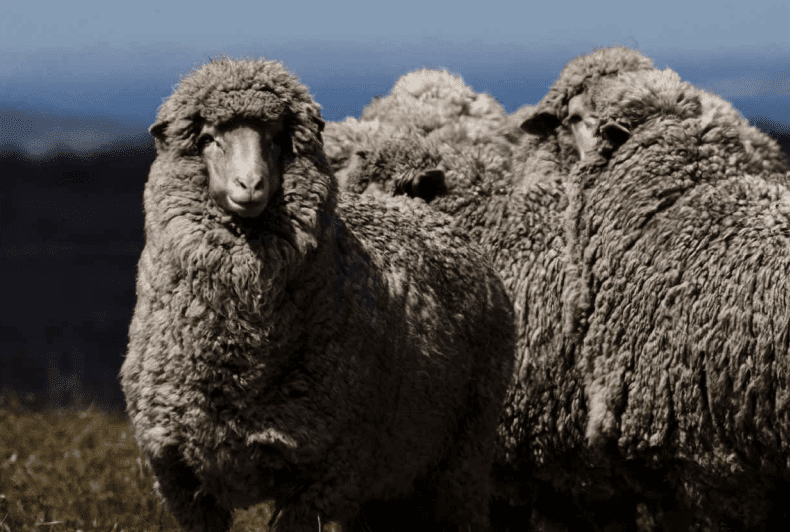
WAFarmers has welcomed the Minister for Agriculture Jackie Jarvis’ confirmation in Parliament that the state will mandate pain relief for mulesing under the nationally agreed Australian Animal Welfare Standards and Guidelines for sheep.
WAFarmers said the move is squarely in line with existing WAFarmers policy.
WAFarmers Livestock Council already supports that effective pain relief should be mandatory for mulesing and has consistently supported continued research into practical alternatives to surgical mulesing.
 Council president Geoff Pearson said Minister for Agriculture Jackie Jarvis’ confirmation to Parliament largely formalises what good producers are already doing.
Council president Geoff Pearson said Minister for Agriculture Jackie Jarvis’ confirmation to Parliament largely formalises what good producers are already doing.
“The community quite rightly expects high standards of animal welfare, and WA sheep producers share those values.
“The reality is that the vast majority of WA woolgrowers have been using pain relief for many years,” he said.
“The government’s decision essentially brings the law into line with best practice on farms, and with WAFarmers’ policy position.”
Peak sheep and wool grower bodies support the WA move
WoolProducers Australia chief executive officer Jo Hall said WPA is pleased to see the support offered by WAFarmers for the confirmation from the WA Minister for Agriculture mandating pain relief for mulesing.
“Progressive organisations such as WAFarmers and WoolProducers have had policy supporting mandatory pain relief for mulesing for a number of years to demonstrate industry’s commitment to best practice for animal welfare.
“Wool growers have demonstrated the prioritisation of animal welfare through the voluntary uptake of pain relief for mulesing with usage rates of around 90% already, having this requirement enshrined in regulation sends a clear message to our supply chain and the general public,” she said.
“When WA formalises this regulatory requirement they will join Victoria and Tasmania who have already introduced mandatory pain relief for mulesing.”
Sheep Producers Australia CEO Bonnie Skinner said the body welcomes Western Australia’s decision.
“It aligns with longstanding SPA policy.
“While each state will make its own regulatory decisions, mandatory pain relief for mulesing is a practical, achievable step that aligns with community expectations and improved welfare outcomes.”
Flystrike keeps mulesing on the table
WAFarmers said the WA Parliament was recently told that about 90 percent of mulesed Merino lambs in WA already receive pain relief, and that DPIRD recommends a multimodal approach – combining a local anaesthetic with a non-steroidal anti-inflammatory – as best practice for reducing pain associated with the procedure.
Mr Pearson said it was important that the debate recognises why mulesing and pain relief remain on the table – namely, the seriousness of flystrike.
“Flystrike is not an abstract welfare concept; it is one of the most distressing, painful and deadly conditions sheep can face.
“Producers see that first-hand. Nationally, flystrike is estimated to cost the industry hundreds of millions of dollars each year and, more importantly, causes severe suffering and death if not controlled,” he said.
Mr Pearson said WA DPIRD and national research bodies have long described flystrike as a major ongoing health and welfare risk in all Australian sheep regions, with breech strike the most common form.
“It was this problem that led to the development of the mulesing procedure in the late 1920s, which early government and industry work found to be highly effective in reducing breech strike and improving lifetime welfare when combined with good management,” he said.
“Modern veterinary and animal science research has focused heavily on minimising the pain associated with the procedure.
“Studies co-funded by Australian Wool Innovation and others have shown that using combinations of topical local anaesthetic products (such as Tri-Solfen®) and systemic analgesics provides significantly better and longer-lasting pain relief than using a single product alone,” he said.
Mr Pearson said national surveys have also found that concern for sheep welfare has driven near-universal adoption of pain relief at mulesing in many regions.
“There is a tendency in some parts of the debate to talk about mulesing in isolation, as if the only animal welfare issue is the procedure itself.
“That ignores the simple fact that uncontrolled flystrike is a far worse welfare outcome. For many high-risk areas, mulesing – done early, properly, and with effective pain relief – remains one of the most powerful tools we have to prevent prolonged suffering.”
Mr Pearson said this broader context is often missing from public and political commentary.
“Mandating pain relief helps ensure the industry presents a united front on animal welfare while we continue to invest in genetics, management and chemical strategies that will, over time, reduce reliance on surgical mulesing.
“WAFarmers strongly supports that transition, but it has to be practical and grounded in the biology of sheep and the fly, not just in slogans.”
Mr Pearson said WAFarmers’ position is straightforward: sheep welfare must come first, but that means dealing honestly with flystrike risk as well as with public expectations.